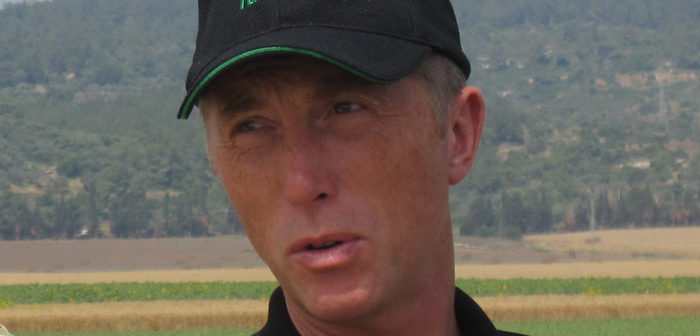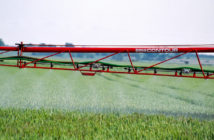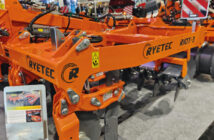Farmers and contractors are missing tricks when choosing bale twine for large square baling operations.
It’s time to cut the confusion and reap the benefits of new twines designed to deliver premium performance across a range of conditions, says the world’s top supplier.
The new twines reflect the latest baling revolution since the arrival of large square balers, and the replacement of sisal with polypropylene before that, says Graham Robson, an expert with 40 years of baling experience around the world.
“Innovations can seem few and far between in a sector where the knotting mechanism used today is virtually unchanged since knotters were first used over 150 years ago.”
But twine quality took a dramatic step forward two years ago and a new way of categorising products aims to help users choose the right option, so they reap the rewards of longer spools of stronger twine, able to produce better knots at lower cost.
Advanced raw materials and improved processes mean twines can now be more accurately matched to specific baling situations. A revolutionary new colour-coding system being implemented in collaboration with the world’s baler makers aims to make choosing simpler.
“Too often farmers and contractors are being deceived into using a twine ill-suited to their situation,” says Mr Robson. “They might feel ‘it works’, so why worry. But they could be producing more bales, more securely, with less down-time and a significant cost saving by taking account of the new colour-coded twines.”
The new four-colour system matches twine type to baling conditions, crop and baler make, with a ‘rainbow’ icon on packs showing which option is being chosen, just like the eco-ratings on kitchen appliances.
Twines complying with the new colour-coded system have received 100% endorsement for the uses indicated from baler makers around the world. Many have done their own evaluation work, in the field, using their own engineers – specifically Case IH, CLAAS, John Deere, AGCO, New Holland and Kuhn.
“Nobody else can claim the level of approval from baler makers, as well as the endorsement that comes from the in-field testing by the twine manufacturer, Tama, using all baler makes in all types of crops and baling conditions around the world,” Mr Robson stresses.
German firm Rasspe, which makes most of the knotters used in today’s balers, has also given its 100% approval for the new twines that make up Tama’s colour coded twine ranges.
Common place in the UK range is the green segment, known as Big Spool Type 72, which provides a guaranteed 9600ft of twine per pack. This twine has the strength and suppleness of knotting ideally suited to all crops in normal baling conditions.
Green segment twines have been on sale in the UK for two years, with their pack length of 9,600ft delivering at least 2,400ft more twine than what some manufacturers market as ‘normal’ 7200 twines – and that is assuming their packs actually contain 7200ft of twine, which many do not, Mr Robson notes.
The orange segment twine, branded LSB Power, with the guaranteed 2-spool pack length of 8,500ft (which will be sold as 2,600m in 2018) clearly marked on the packaging, is the most popular and best performing twine for all crops and balers where high density is required. This twine most closely equates to what many suppliers continue to call 7200 twine, even though most 7200 twines are now shorter. “This highlights the stupidity of the entire situation of using a twine ‘length’ as any indicator of its strength or performance,” Mr Robson comments.
Stepping up a bracket to the most demanding situations red-coded HD Extra and HD Power are specially designed for use in balers in the ‘extra’ high density sector, such as AGCO XD and Krone HDP 1 balers, for making extremely dense bales, or when baling in extreme conditions, such as high temperatures and low humidity.
Tama also makes an HD Prime twine for the highest density balers working with straw in conditions of extreme density or high temperatures, short straw and maize stalks. It is offered in Europe, and whilst not generally required in UK conditions it could be made available by special request in very limited quantities.
Special twines, more resistant to abrasion, have also been developed for the higher density CLAAS balers and their single-knot system.
Twine tips
————–
- Match twine to baler, crop and conditions
- New 4 colour-coded categories aid selection
- Fully approved by baler manufacturers
- Approved by knotter maker Rasspe
- Crucial for HD/XHD/UHD balers + heavy crops
- Stronger, better quality twine for better knots and fewer breaks
- Quality twines allow longer spools
- More bales per spool cut costs
- Less downtime swapping spools




